- Home
- B. V. Larson
Rebellion sf-3 Page 5
Rebellion sf-3 Read online
Page 5
“Colonel?” Major Sarin said. “Sir?”
“What is it?”
“The doors sir, they-”
But she didn’t get any further. Alarms went off all over the base.
Doors? I thought, then I figured it out, and I screamed for the crash-straps to be re-engaged. This time, Sandra didn’t waste any time. She relayed the command, and all over the base little nano arms sprouted and grabbed Marines, securing them. It was a good thing too, as the four triangular doors of the hold had cracked open and begun to fold outward. Escaping atmosphere boiled out into space. We felt the command brick shift with the explosive force of its passage. The magnetic clamps held, however, and none of the bricks floated out with it.
A few of my men were not so lucky. They were lifted as if by a tornado. I ordered the internal cameras in the hold to be displayed. Marines and equipment spiraled out of the flowering jaws of the invasion ship into space. They all appeared to have their helmets on, at least.
“Man the assault ships!” I shouted over the roaring din. “I want every pilot aboard their ships, with a complement of two, including one medic. Get out there and rescue every marine you find!”
The next few minutes were a frenzy of activity. The doors had opened and sucked out dozens of my men into space before the crash-straps could grab them. I figured they were getting their null-gravity training hands-on today. I ordered one of my eight assault ships to pick up local men, those who had been sucked out by the released pressure in the hold. The other seven ships I sent back to the ring we had just come through. They were to grab every living man they could and bring them back.
“Sir?” Gorski asked, trying to get my attention.
“What is it, Captain?” I snapped.
“I’m not sure, sir…”
“Not sure about what?”
“Not sure this will work. I’m still toying with the math. You might have to abort the rescue effort at the ring.”
“Clarify. And do it fast.”
Gorski shook his head and worked at his screen where he had a big spreadsheet app displayed. Calculus functions were everywhere, displaying large numbers.
“The invasion ship is not decelerating. If we send back our assault shuttles, they might not be able to get to the marines, pick them up, and then turn around and chase us down before we’ve reached our destination.”
“Which is?” I asked.
Gorski tapped his board. “I’ve plotted that out. Given our course and the time-frame the Macros provided, we are heading for one of the big satellites orbiting the outermost warm-water world. There are factors I’m not sure of, but if the Macros keep to their schedule and launch us about four hours from now, we will be going pretty fast when we get there as it is.”
“Just do the math, and give me the answer.”
“I can’t give you a definitive answer, sir,” he said. “There are unknowns.”
“Such as?”
“The big one is our launch point: How far out do the Macros expect to be when they launch us at the enemy?”
I nodded. I could see that. If they intended to move right up and dock with these satellites…that was a far different set of circumstances than firing us out of the hold at a safe distance. Possibly, they intended to pass by and shoot us out laterally, like drive-by bullets fired out a window. Not being able to ask your commander a legitimate question about the grand plan was painful when setting up an assault.
“What’s your call, sir?” Gorski asked.
“What’s a safe point of no return?” I asked.
Gorski didn’t ask what I meant. He knew well enough. I watched him tap at his screen. I needed to know how long I had in the worst case to make my decision.
“You should have two hours, Colonel,” he said. “After that, we are taking the risk of not having the assault ships with us when we have to make our attack-given that the macros won’t adjust their timetable.”
I thought about it, and the more I did the more I didn’t like it. The Macros had never been easily diverted from their plans-even when they were suicidal. They’d rather see us all die pointlessly than be a few minutes late. There was a certain beauty in their approach, from a commander’s point of view. These heartless robots were very good at motivating people to be on time.
I listened for a second to the SOS calls. I ordered Sandra to hook me up on an open transmission channel to my drifting marines. At least, with the hold door open, we could do that much.
“Echo Company,” I said. “This is Colonel Kyle Riggs. We are in contact. We have your positions mapped. We are coming to get you, boys…one way or another.”
There was a lot of cheering after that. Only Major Sarin and Captain Gorski stared at me worriedly. They knew I was splitting my forces in the face of an unknown enemy. I was changing the plan midstream. Possibly, this was a foolish error, but I couldn’t bear the thought of sailing on by my own men and leaving them hanging out there in space, watching us. I knew they were dying gradually in the cold. Call me a sentimental fool, if you wish.
6
Out of the seventeen marines who were sucked out into space, we recovered all but two alive. Three of the survivors were too banged up to fight, but they would heal fast in tanks of nanites. They would have to sit out this assault, but if there was another one, they would be ready to go by tomorrow. Our medical nanites were now better than ever before. They seemed to be learning and getting better at bodily repair each passing month. I often joked they would be able to convert me into a blue-eyed blond, if I wanted to be one, in a few years. They had studied human anatomy for decades prior to the invasion, but that was different than real trauma recovery.
It was miraculous to watch when they flowed over an open wound. I winced when I checked on my injured men, knowing the itch they felt and the gagging tastes of metal in their mouths. A common unpleasant side-effect was sudden blindness that struck when too many clustered around the optical nerve, shorting it out, or went for a swim in the aqueous fluid.
But one could not argue, despite these inconveniencies, the nanites were a godsend. They weren’t like a surgeon-they were like a million tiny surgeons, able to stitch up something as small as an individual cellular membrane. They weren’t as small as viruses, but they could be as small as a single microbe. They were like intelligent, metal microbes that worked in tandem to do amazing things.
The seven assault ships I’d sent back to the ring to pick up the rest of my men had reached them by now. They hadn’t finished the retrieval process, however. It wasn’t easy. My marines were floating around out there in the dark, drifting away from one another. Many were on emergency power and didn’t even have working transponders. I returned to the command brick after ninety minutes and had Sandra contact the pilots.
“Time to finish up out there, Major Welter,” I said, calling my squad leader. Major Kurt Welter was new, and newly promoted, but he’d done well back on Helios. He was my replacement for Captain Roku, who’d died in his hovertank on Helios. Welter had flown with the Fleet back at Andros Island-before the Nanos had taken off and abandoned Earth. That rare flying experience had led me to put him in command of the assault ships.
“We’ve recovered most of them, sir. We’re down to the ones that aren’t responding.”
“You mean the bodies?” I asked.
“Mostly. Every few minutes, we find one that is still breathing, however. They can’t signal us if their power has dropped too far, and many are partly frozen. I’m not sure how much good they will be in the upcoming fight.”
“They won’t be much good at all,” I said. “That’s not why we’re picking them up.”
“Of course not, sir,” Welter said smoothly. “But by the calculations, we soon won’t have enough time to participate in the attack…unless you want us to use these troops we just picked up?”
I thought about that, and I didn’t like it. I couldn’t expect these men to fight, not after they’d been floating out here for days. “Here’s
what we’re going to do, Kurt,” I said. “Move all the survivors off one ship and put them aboard the other five. Then leave the empty ship on rescue for now. The other six will then head back to the mothership.”
“Roger that, sir.”
“And Major Welter? The ship you leave behind will not be yours. I want you leading this assault.”
“Assumed, sir. Welter out.”
I looked at Gorski when the connection closed. “Will they make it?”
He nodded. “They’ve got to hurry. But barring any further surprises or acceleration on the part of the Macros-then yes, barely.”
Seven ships. That was what I had to work with. That, plus sixteen hundred one-man capsules. I didn’t like to think about what might happen to all those men in nanite soap-bubbles if my assault ships didn’t make it back in time to breach the hull of the target satellite for them.
One benefit of having the Macros blow the doors open on us and having my ships out there was the superior dataflow coming from the assault squadron’s collective sensors. They weren’t exactly scout ships, but they were a lot better than the single array I had embedded in the Macro ship’s hull.
“Let’s take a look at the target list and what we know about them.”
“I’m certain we are headed for the outermost habitable world,” Gorski said. “We just don’t have time to reach the others. I’ve got three satellites orbiting that world. I think it is significant to note that the Macro cruisers are staying many thousands of miles from any of these satellites.”
“Which would indicate they are armed with space-combat weaponry,” I said. “Do we have any intel on these platforms and their combat abilities? Are they engaging the Macros? Are they firing anything at them?”
“No sir, not so far as I can tell.”
I shook my head and scratched the back of it. Why weren’t they fighting? This had to be some kind of test. Maybe the Macros just wanted to see what my troops could do in this situation. Maybe they thought we were the best unit they had. If that was the case, I appreciated the compliment, but I certainly didn’t want to keep impressing them.
“Colonel Riggs?” asked Major Sarin. I slid my eyes toward her. “If those platforms have enough firepower to keep a Macro cruiser at bay, sir…”
I nodded, agreeing with her unspoken thought. “Yes. That means they will blast our assault ships completely out of the sky. Not to mention our pathetic suicide capsules.”
Sarin stared at me. “Are we really going through with this, Colonel? If we are crippled in numbers, we will lose all of our other-options.”
There it was again. I looked around at them briefly. I could tell they thought we would have better odds fighting the Macros. I felt a spiking headache blossom at the base of my neck. I wanted to attack the invasion ship as badly as they did. I wanted to run out of this system and head back to Earth. But now, there were witnesses. Macros were everywhere. Right here, in this system, there were enough ships to head back to Earth and trash my homeworld.
“Proceed as ordered,” I said.
The assault ships were coming back now. Accelerating as hard as they could, they slid toward us at an impressive velocity. I thought they just might make it.
“We’re going to need covering fire from these Macro ships,” I said, shaking my head. I could not fathom how else we were going to get all the way to the hull of one of these space stations without getting blown away. “Open a channel to Macro Command.”
Sandra did as I asked instantly. She was really on top of things now. I thought maybe I hadn’t screwed up by putting her in the command brick after all.
“Macro Command, this is Kyle Riggs.”
Silence. The Macros had never been big on salutary greetings.
“We request supporting fire from Macro Cruisers on the primary target satellite.”
“Request denied.”
I blinked in rapid annoyance. “In order to assure operational success, we require supporting fire.”
“Request denied.”
With all my heart, I wanted to shout WHY NOT? But I didn’t. I kept cool and tried to think of a better wording for my request. I couldn’t come up with anything, so I decided to work on the question of why they were refusing. I couldn’t do it by simply asking, of course.
I closed my eyes to focus to the conversation.
“Your refusal to cooperate is not logical,” I said.
“Incorrect. The request cannot be granted.”
“You are asserting that my request is impossible.”
“Incorrect. The request cannot be granted.”
“Explain your logic in not granting my request.”
“Prior agreements are to be respected in this instance.”
My eyes snapped open again at that. Prior agreements? At first, I thought they meant the agreements they had with us. What deal had they made that indicated they could not provide covering fire? Were they worried they would hit some of my men as we launched our assault?
“Explain the nature of your prior agreements pertinent to this decision.”
There was a hesitation. I knew I had whatever served these robots for a central brain churning with that one.
“Request denied. Arrangements with other states are not to be shared with Kyle Riggs.”
I froze as I suddenly, completely, got it. They weren’t talking about a deal they had with us, they were talking about a deal they had with them. Whoever was in those satellites had negotiated a peace of some kind-a truce. Probably, the Macros had promised not to attack the satellites. Maybe at the point they had agreed, the Macros had been losing, or didn’t have the full power of their fleet here yet to finish the job.
I looked down at the big screen, which shifted now to give us a visual on each of the planets. The two closest to the star looked desertous, like Mars, but there were still icecaps, feathery clouds and some visible, muddy oceans. The three in the center, including the twin worlds, were verdant and gorgeous. I saw my first blue alien oceans, with thick clouds and green continents.
The one we were streaking toward was mostly white, being a colder world. I imagined that arctic sheets of ice spanned most of the planet. It was a big world covered with dark, craggy mountains. A dozen narrow seas glinted between the peaks at the center of the world, like a belt of jewels. It appeared habitable, but mostly around the equator.
The Macros planned to use us to finish off the people who lived here, whoever they were. I could see it all in my mind now. The desperate leaders of these lovely worlds had negotiated at some point in the past. They had made a grim deal with the Macros, just as I had when we faced extinction. They had forged a peace treaty to save their own skins. They’d given up the surface of all six of their worlds, which were now overrun with Macros, and agreed to keep only their satellite habitats. They’d made the deal in good faith, probably years ago.
And the Macros were going use us to break the peace. We were not Macros, and so we were not included as part of the deal.
7
The assault ships returned from the rescue mission less than an hour before the Macros had indicated we were expected to launch. We quickly loaded each of the ships with a complement of twenty marines. Less than a hundred and fifty men, and everything depended on them. I ordered the rest to follow in their wakes. Two hundred more marines would fly in their tiny capsules behind each of the assault ships.
Warrant Officer Sloan was among the survivors the ships brought in. I had to smile at that. He had jumped out of his hovertank and survived when it had flipped over right in front of me, back in the Helios campaign. Here, he had survived again, against all odds. He wasn’t even in bad shape, considering he’d spent three days in emergency survival mode, floating in space.
I met with him as they unloaded the ships. I clasped his right hand in both of mine.
“Really good to see you, Sloan,” I said, and I meant it.
“Colonel!” he said, looking tired but joyous at having survived. “Your happiness
is nothing compared to mine, let me assure you.”
I chuckled. “I believe you. Tell me, what happened to the thousand-odd Worms you took into the void with you?”
His face clouded for a moment. “I almost felt sorry for them. They weren’t wearing vacc-suits-we were. Mostly, we just kept out of their reach until they died. It took a long time for some of them to stop twitching out there.”
I nodded, visualizing the scene. It was not pretty.
“We calculated you had enough power to run the rebreathers for a week, but what about heat, water, food?”
“Mostly, we starved and dehydrated. A few tried to synthesize Worm meat into distilled water. It just ran their suit power down, as the meat was frozen. We waited out there floating in chains, linking our arms together. We never really thought there would be a rescue, but only a few opened their suits and committed suicide. We told stories and watched the ring. When your ships came through, we started taking turns increasing the power on our suit transmissions, taking the chance someone would hear.”
“If we survive and see Earth again,” I said, “I’m going to see every one of your men get a commendation.”
“At least there are no sharks in space, sir,” Sloan said with a weak grin.
Oh, but there are, I thought, but I laughed at his joke and guided them to the infirmary. Some actually tried to volunteer for assault ship duty, but I refused them. They had to rest up for the next battle. They were my reserve force. They didn’t argue.
I headed back to the command brick with a heavy heart. We had less than half an hour to go before the assault began. In all my recent years of hard decisions, this one topped my list. I realized I would have to decide if the Star Force marines would be a tool in the cold, heartless, metal claws of the Macros once again. I had never created this army for this purpose. I had never meant for things to go this way. I imagined many historical commanders had felt the same dismay I felt right now when they realized their beloved armies had been misused by others. I recalled the German general, Choltitz, who had disobeyed his orders to blow up Paris when forced to retreat.

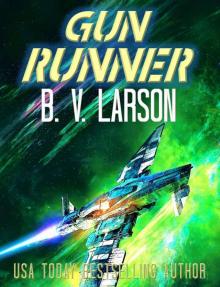 Gun Runner
Gun Runner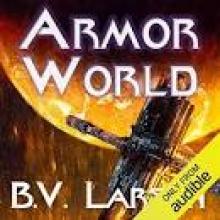 Armor World
Armor World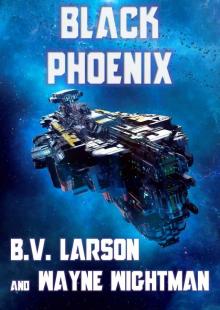 Black Phoenix
Black Phoenix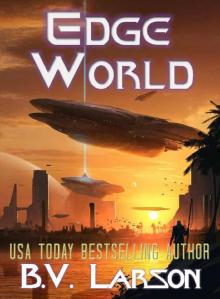 Edge World (Undying Mercenaries Series Book 14)
Edge World (Undying Mercenaries Series Book 14)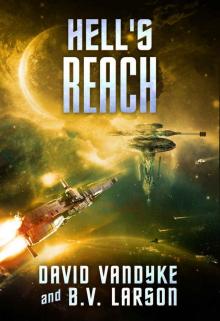 Hell's Reach (Galactic Liberation Series Book 6)
Hell's Reach (Galactic Liberation Series Book 6)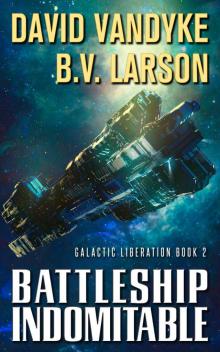 Battleship Indomitable
Battleship Indomitable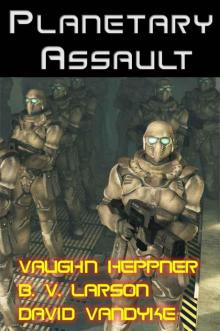 Planetary Assault (Star Force Series)
Planetary Assault (Star Force Series) Flagship Victory (Galactic Liberation Book 3)
Flagship Victory (Galactic Liberation Book 3)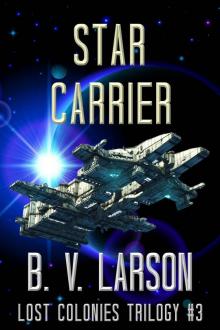 Star Carrier (Lost Colonies Trilogy Book 3)
Star Carrier (Lost Colonies Trilogy Book 3)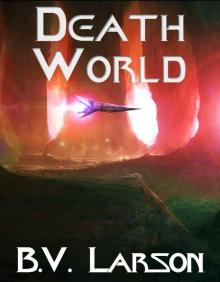 Death World (Undying Mercenaries Series Book 5)
Death World (Undying Mercenaries Series Book 5)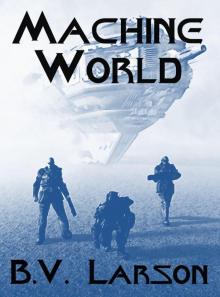 Machine World (Undying Mercenaries Book 4)
Machine World (Undying Mercenaries Book 4) Mech 2
Mech 2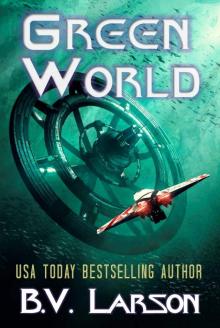 Green World
Green World The Swords of Corium
The Swords of Corium Star Force 11: Exile
Star Force 11: Exile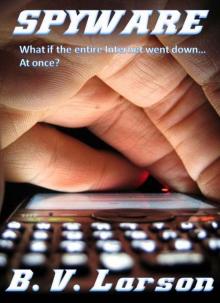 SPYWARE BOOK
SPYWARE BOOK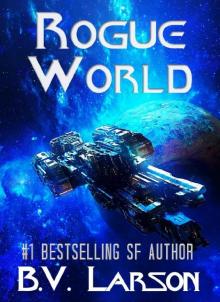 Rogue World (Undying Mercenaries Series Book 7)
Rogue World (Undying Mercenaries Series Book 7)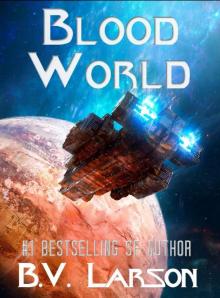 Blood World (Undying Mercenaries Series Book 8)
Blood World (Undying Mercenaries Series Book 8)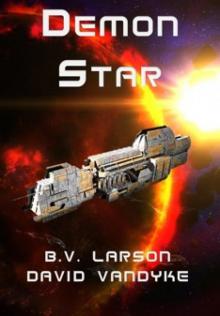 Demon Star
Demon Star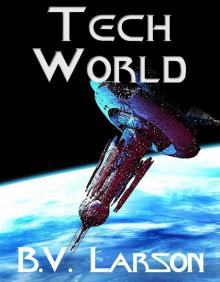 Tech World (Undying Mercenaries Series)
Tech World (Undying Mercenaries Series)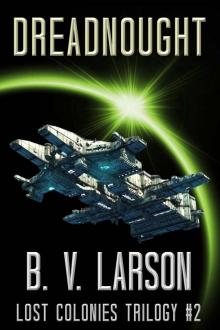 Dreadnought (Lost Colonies Trilogy Book 2)
Dreadnought (Lost Colonies Trilogy Book 2) Shifting
Shifting To Dream with the Dragons (Hyborean Dragons)
To Dream with the Dragons (Hyborean Dragons) Flagship Victory
Flagship Victory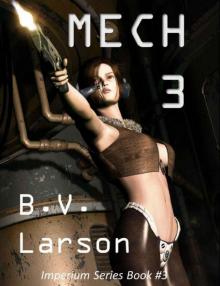 Mech 3: The Empress
Mech 3: The Empress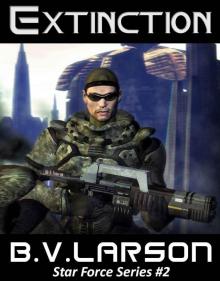 Extinction Ebook Full
Extinction Ebook Full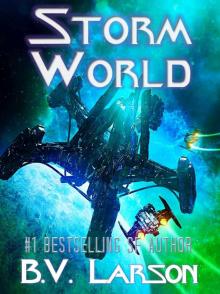 Storm World (Undying Mercenaries Series Book 10)
Storm World (Undying Mercenaries Series Book 10)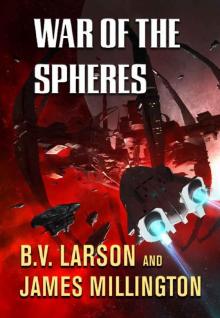 War of the Spheres
War of the Spheres MECH EBOOK
MECH EBOOK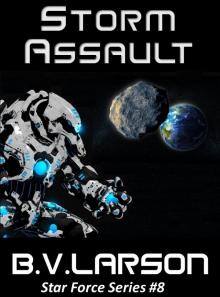 Storm Assault (Star Force Series)
Storm Assault (Star Force Series)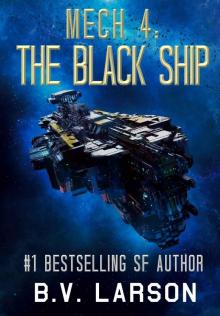 Mech 4: The Black Ship (Imperium Series Book 5)
Mech 4: The Black Ship (Imperium Series Book 5) Technomancer
Technomancer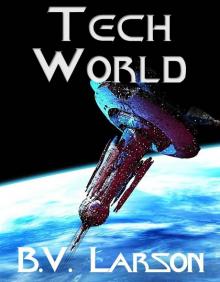 Tech World
Tech World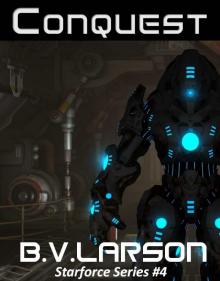 Conquest (Star Force Series)
Conquest (Star Force Series)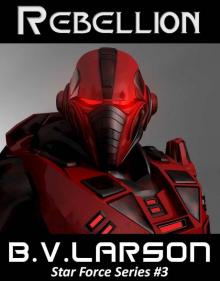 Rebellion sf-3
Rebellion sf-3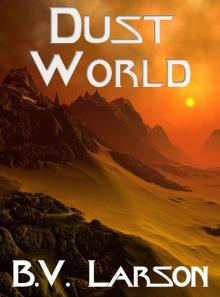 Dust World
Dust World The Dragon Wicked
The Dragon Wicked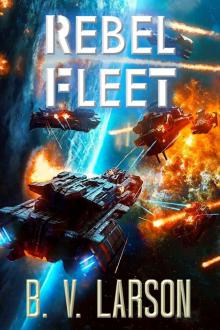 Rebel Fleet
Rebel Fleet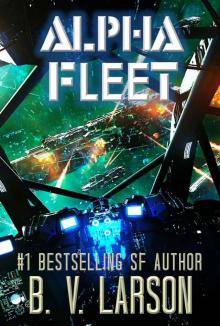 Alpha Fleet (Rebel Fleet Series Book 3)
Alpha Fleet (Rebel Fleet Series Book 3)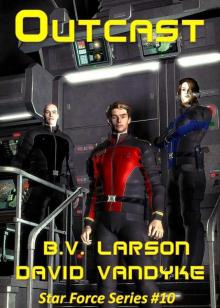 Star Force 10: Outcast
Star Force 10: Outcast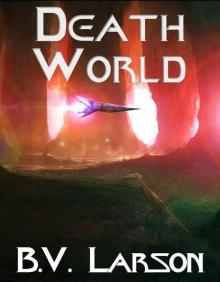 Death World
Death World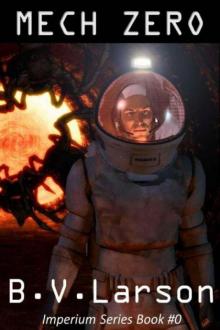 Mech Zero: The Dominant
Mech Zero: The Dominant The Sorcerer's Bane
The Sorcerer's Bane Battleship Indomitable (Galactic Liberation Book 2)
Battleship Indomitable (Galactic Liberation Book 2) Haven Magic
Haven Magic Amber Magic (Haven Series #1)
Amber Magic (Haven Series #1)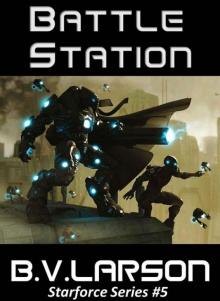 Battle Station sf-5
Battle Station sf-5 Of Shadows and Dragons
Of Shadows and Dragons Starfire
Starfire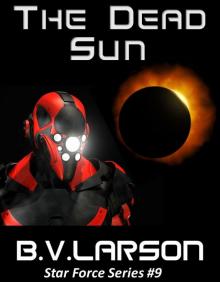 The Dead Sun (Star Force Series)
The Dead Sun (Star Force Series) Home World (Undying Mercenaries Series Book 6)
Home World (Undying Mercenaries Series Book 6)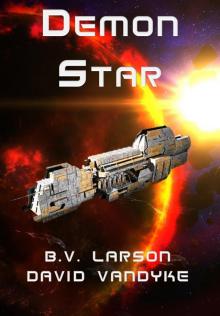 Star Force 12 Demon Star
Star Force 12 Demon Star Dream Magic
Dream Magic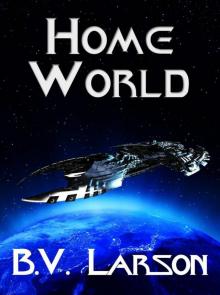 Home World
Home World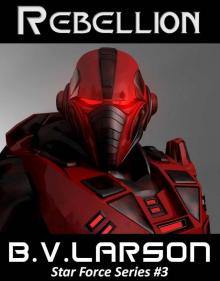 Rebellion Ebook Full
Rebellion Ebook Full The Bone Triangle
The Bone Triangle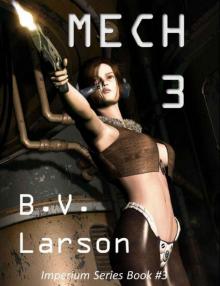 The Empress i-3
The Empress i-3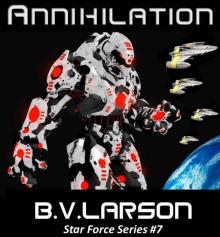 Annihilation (Star Force Series)
Annihilation (Star Force Series)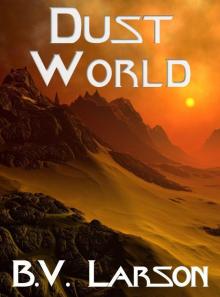 Undying Mercenaries 2: Dust World
Undying Mercenaries 2: Dust World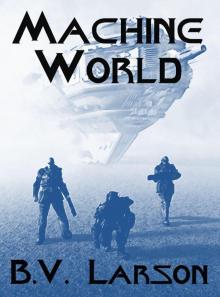 Machine World
Machine World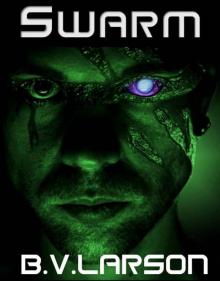 Swarm
Swarm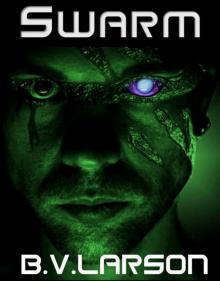 Swarm sf-1
Swarm sf-1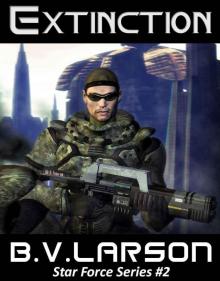 Extinction sf-2
Extinction sf-2 Amber Magic h-1
Amber Magic h-1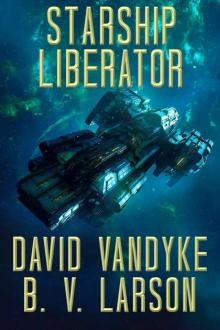 Starship Liberator
Starship Liberator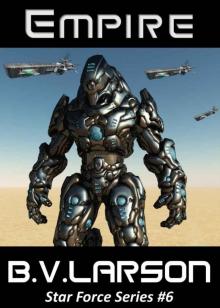 Empire Ebook Full
Empire Ebook Full The Dragon-Child
The Dragon-Child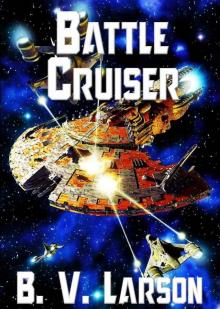 Battle Cruiser
Battle Cruiser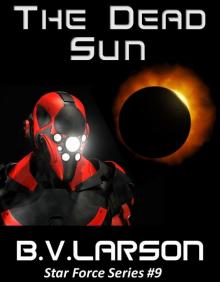 The Dead Sun
The Dead Sun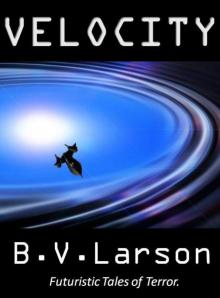 Velocity
Velocity Creatures
Creatures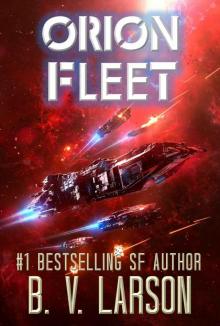 Orion Fleet (Rebel Fleet Series Book 2)
Orion Fleet (Rebel Fleet Series Book 2)